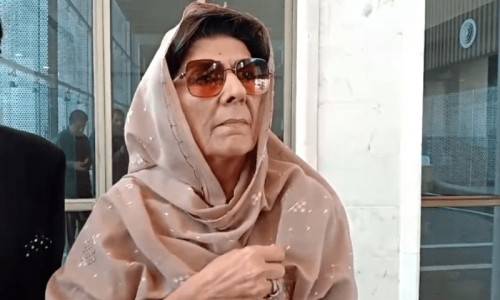CHITRAL, June 3: Owing to increasing influence of the outside world on the lives of local people because of visits by large number of foreign tourists and opening of educational institutions in the area, the unique and primitive culture of Kalash is in danger of extinction, local people say.
Elders of the Kalash valleys say their culture has been falling into decline, mainly because of access to modern education in the region.
They said that during the recent spring festival known as ‘Joshi’ in the valley, the younger generation was conspicuous with its absence during traditional dances and rituals on the occasion. A Kalash elder explained that there was a sharp divide between the old and new generations.
A number of Kalash youths are currently enrolled in colleges and universities that bring them in contact with modern cultures and they cannot resist the inevitable changes, a social worker Shah Murad Baig said. He said that in the global village view of the world, the Kalash culture was changing. In the past it had remained isolated, with no interaction with the outside world or foreigners.
He said that nowadays hundreds of Europeans visited the valley every year, who cultivated friendships and acquaintance with the local Kalash people. Young Kalash boys and girls also visited European countries on the invitation of their friends.
Some Kalash elders complained that the younger generations were adopting the new and foreign ways of life and felt pride in it, and said that it was a pity that they considered their own culture and traditions as inferior and obsolete. The difference between the old and new generations was also obvious from their apparels as young Kalash boys preferred wearing Western clothes instead of their traditional dresses.
A young Kalash man said that it was unthinkable for him to wear his traditional dress outside the valley and added that he felt more comfortable in western clothes.
Education is becoming common in the Kalash valley as more and more schools are opening, both in the public and private sector.
Two high schools have been established in three of the Kalash valleys and two primary schools have been set up by a Greek organisation. Presently, more than 70 per cent of the Kalash children are enrolled in the school which means that more Kalash people will deviate from their traditional values and norms, the elders feared.
They said that during the last two decades, the Kalash have discarded a number of their traditions.
Social worker Mohkamuddin said that many rapid changes were taking place in Kalash society and nothing can be done to stop it.
Kalash of today is quite different from what it was two decades ago, he said adding that Kalash was no more gullible but had become cleverer and could fight for his rights against any aggressor unlike in the past.
When asked how to contain the decline of Kalash’s unique culture, no solution was put forward by any quarter except for the suggestion to make the inevitable changes of the modern age indigenous in the valley.












































